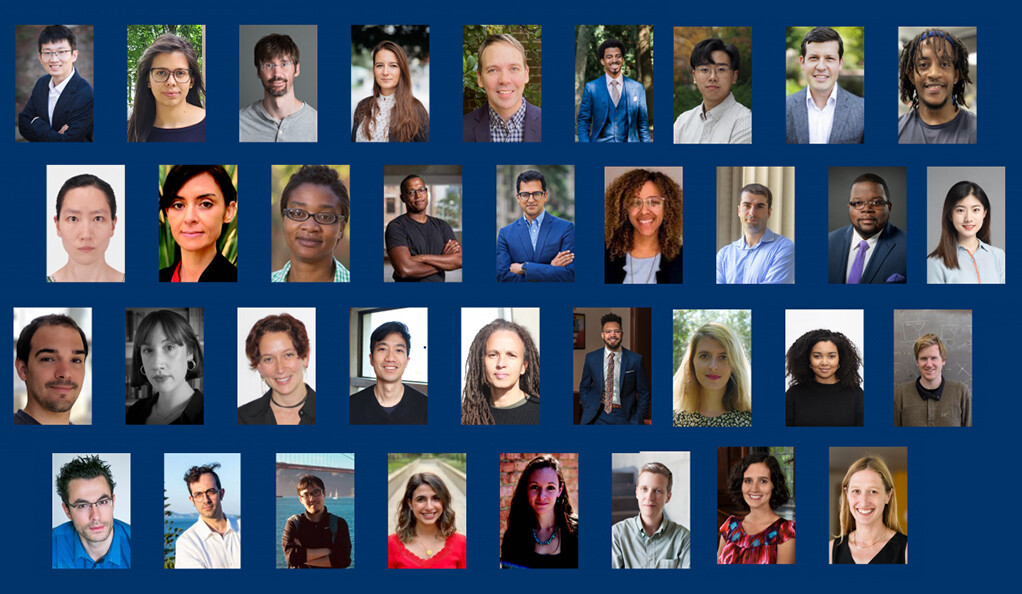FAS welcomes its most diverse set of ladder faculty
Yale was one of few universities in a financial position to hire last year, and brought in 26 ladder faculty.

Yale News
Yale welcomed 26 scholars to the Faculty of Arts and Sciences this fall — its most diverse cohort ever.
The new academics joining the ladder faculty — otherwise known as the tenure track — reflect the University’s continued commitments to diversity, according to FAS Dean Tamar Gendler. She credited the diversity of the new class in part to efforts from professor of physics Larry Gladney, who joined the University in 2019 as the dean of diversity and faculty development and instituted new diversity guidelines in the hiring process. Since his hiring, Gladney has implemented reforms to the search process, with departments adding diversity statements to their applications and placing employment ads in more accessible venues.
Four more faculty members will come to campus in January, and another five will hold visiting appointments before joining the ladder next fall. The 2021-22 cohort is notably smaller than previous years, down from 44 during the 2019-20 academic year and 51 in 2017-18. Last year’s March 2020 hiring freeze brought a recent low of 30 new hires in 2020-21.
Still, Gendler told the News that this year’s faculty are particularly strong because of an overall “soft market” for jobs in academia last year. Although many searches were paused or canceled at the onset of the pandemic, the University resumed hiring in Sept. 2020 after administrators deemed the University to be in a “financially responsible” position to continue searches for new faculty, particularly in junior positions.
“It was an extraordinary year, because we were one of the few universities in the nation that was hiring last year,” Gendler told the News. “Almost no one else was searching for faculty.”
Of the 30 total faculty members who joined or will join during the current academic year, 11 identify as nonwhite, four of whom are underrepresented minorities — Black or African American, Hispanic or Latinx or American Indian or Alaska Native — according to an email Gendler sent to faculty on Thursday. Forty-three percent identify as female or nonbinary.
Gladney told the News that this is the third cohort of professors who have been hired according to new rules, which include his approval of diversity search plans that aim to broaden each position’s applicant pool.
“Diversity equals excellence,” Gladney said. “The more diverse your faculty is, the more capacity you actually have for engaging students along different viewpoints.”
Half of the new faculty were appointed in humanities departments, including three joint appointments of junior professors in the African American Studies Department. Both the history and English departments also brought on three new members, while women, gender and sexuality studies gained five. Social science departments, meanwhile, picked up a combined three.
The cohort includes twelve tenured professors recruited laterally from other schools as well as recently-graduated junior faculty. In her email, Gendler cast the new professors as the “next era” noting that the proportion of tenure-track faculty in the first decades of their careers has increased significantly.
Assistant professor of African American studies and English Elleza Kelley, who recently earned a doctorate from Columbia researching Black geographies in African American literature, described her new appointment as a “dream job.” She will begin teaching in the spring and noted the increased diversity of both the student and faculty populations.
“I’ve heard that this is the most diverse undergraduate class, so I would think of those things together as being deeply related, hopefully something that will … shake things up for the better,” Kelley said.
Meanwhile, science departments and the School of Engineering and Applied Sciences gained a combined 12 faculty members, including three each in computer science and mathematics.
Lu Wang, a mathematics professor, became only the third woman to gain tenure in her department. The geometric analyst attributed her move from the California Institute of Technology to Yale’s recent investments in the sciences.
“That change actually attracted me to Yale because I was interested in contributing to this trend, to this big campus investment,” Wang told the News.
Wang added that she hopes more female hires will follow.
Professor of computer science Yongshan Ding, who recently earned his doctorate and studied quantum computing at the University of Chicago, also praised the University’s focus on sciences. He likened current excitement in the quantum computing field — one of the five science areas of focus of Yale’s current capital campaign — to that of classical computer science in the 1970s.
“I’m so glad that Yale has recognized this second revolution in the digital age, which is to harness quantum mechanics to process information,” Ding said. “Yale is absolutely one of the best places in the world to do that.”
In the 2019-20 academic year, there were 217 female and 464 male professors in the Faculty of Arts and Sciences.







